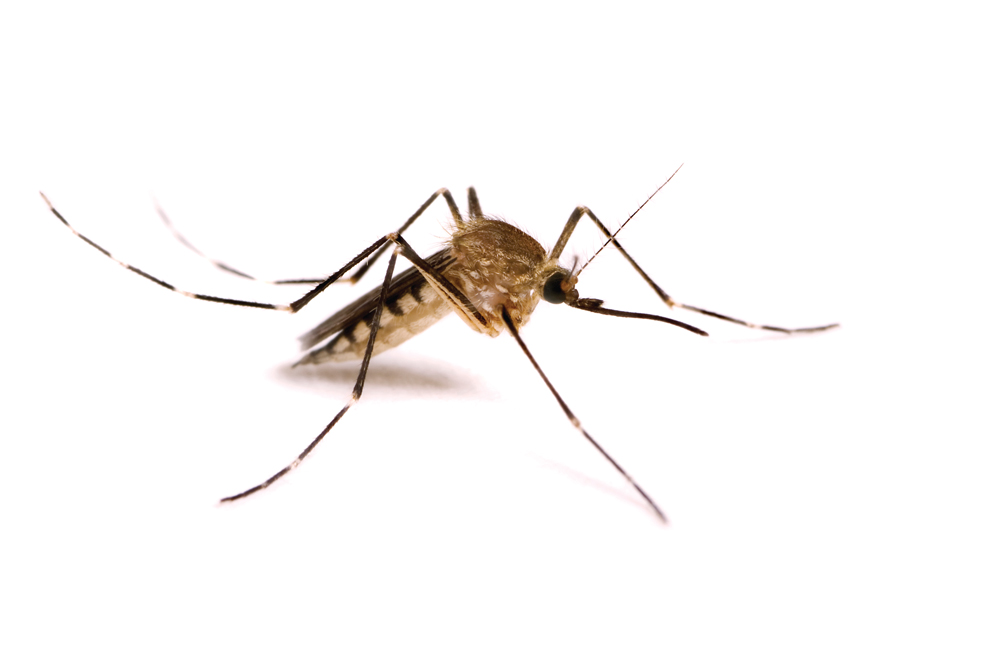 The buzz of a mosquito can send mere mortals running indoors. The incessant buzz … buzz … buzz in our ears is more than some of us can stand. The mosquitoes’ bothersome bites can keep us itching for days. Not only can mosquitoes carry a variety of diseases but they serve as a major distraction as they buzz, land and bite. No wonder we are relentless in our search for mosquito vanquishers!
The buzz of a mosquito can send mere mortals running indoors. The incessant buzz … buzz … buzz in our ears is more than some of us can stand. The mosquitoes’ bothersome bites can keep us itching for days. Not only can mosquitoes carry a variety of diseases but they serve as a major distraction as they buzz, land and bite. No wonder we are relentless in our search for mosquito vanquishers!
While there are numerous products on the market to use as sprays and lotions or to wear as clothing, bracelets and neckwear, many of these are coated with chemicals that may cause undesired side effects. Now there are natural products using essential plant-based oils that allegedly deter mosquitoes and other insect pests.
There is much discussion regarding the real benefits of these natural remedies. Some experts will swear by these concoctions, and others say they are totally ineffective. Part of the problem is that researchers cannot think like mosquitoes. They are not really sure why these insects are attracted to people, and why some of us are more attractive to mosquitoes than others. Mosquitoes seem to be attracted to odors on our skin, and if these odors can be masked, this can help as a repellent.
Plant-based products, often referred to as “secret sauce,” may be effective deterrents because of the essential oils used in the recipes. These oils are derived from herbs that have a pungent aroma and a taste that is thought to be a deterrent.
A study conducted at Iowa State University reported tests on the repellent abilities of catnip, also known as catmint. While catnip drives cats wild, it also seems to drive mosquitoes away. Findings reported at a national meeting of the American Chemical Society claimed that catnip is ten times more effective at repelling mosquitoes than compounds used in most common bug repellents. Nepetalactone, which is the essential oil in catnip, seems to act as a very effective insect deterrent. Researchers are not sure why; it could simply be unattractive to mosquitoes.
If mosquitoes are a problem for you, it might be worth trying a natural approach. But before attacking mosquitoes with any type of repellent, make your backyard as unappealing as possible for them. Your first line of defense is to rid the area of their favorite haunts. Mosquitoes love standing, stagnant water. Remove containers and other garden ornaments that collect standing water. Bird baths are charming, but do change the water daily. Still water is an open invitation to mosquitoes.
Once the garden is devoid of standing water, make a plan where mosquito repellent plants might be the most useful. Planters on the patio, along walkways and in borders all make ideal locations for mosquito-repellent plants.
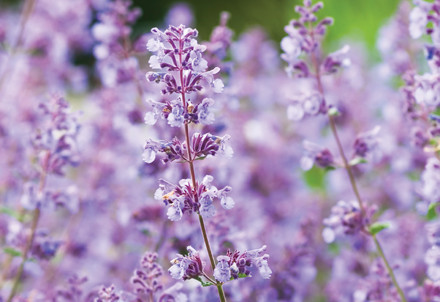 Some of the plants that researchers and horticulturists believe may be effective in combatting mosquitoes include:
Some of the plants that researchers and horticulturists believe may be effective in combatting mosquitoes include:
CATMINT Also known as catnip, this herb lives and thrives everywhere. It is a member of the mint family and is easy to care for, but like many plants in the mint family, it can be very invasive.
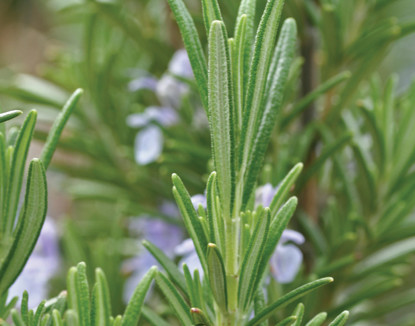 ROSEMARY Known for its pungent, woody scent, rosemary keeps insects (and some people!) at bay. A popular cooking herb, rosemary thrives in hot and dry conditions and does well in containers. It can be pruned and works well as a border plant along walkways.
ROSEMARY Known for its pungent, woody scent, rosemary keeps insects (and some people!) at bay. A popular cooking herb, rosemary thrives in hot and dry conditions and does well in containers. It can be pruned and works well as a border plant along walkways.
BASIL This herb also plays double duty as a kitchen herb and a repellent. There are various basil varieties and all have a pungent odor. Basil plants prefer damp soil with good drainage and lots of sun.
LAVENDER This herb has a lovely fragrance that not only repels many insects but also keeps rabbits and other small mammals at bay. Most varieties are tough and drought resistant. With sun and good drainage, they do well once they are established. Check with your local garden center to find out which variety will do best in your specific location.
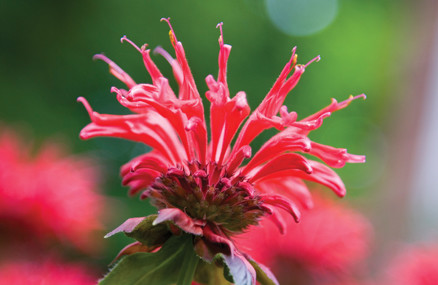 BEEBALM Also known as horsemint, this herb produces a strong incense-like scent that insects avoid. It is fast growing, shade tolerant, drought resistant and prefers dry, sandy soil.
BEEBALM Also known as horsemint, this herb produces a strong incense-like scent that insects avoid. It is fast growing, shade tolerant, drought resistant and prefers dry, sandy soil.
MARIGOLDS Hardy marigolds are both ornamental and act as critter deterrents. These annuals have a distinctive aroma and contain pyrethrum which is used in many insect repellents. Marigolds like full sun and fertile soil.
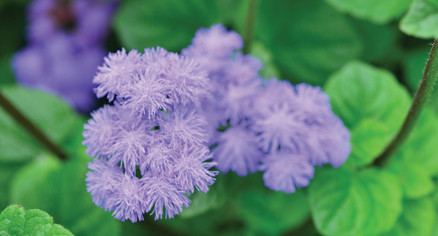 AGERATUM This ornamental annual secretes coumarin, which is another commercial mosquito repellent. Whether it secretes enough to be effective is not really proven. Ageratum thrives in partial or full sun and does well in planters and garden areas.
AGERATUM This ornamental annual secretes coumarin, which is another commercial mosquito repellent. Whether it secretes enough to be effective is not really proven. Ageratum thrives in partial or full sun and does well in planters and garden areas.
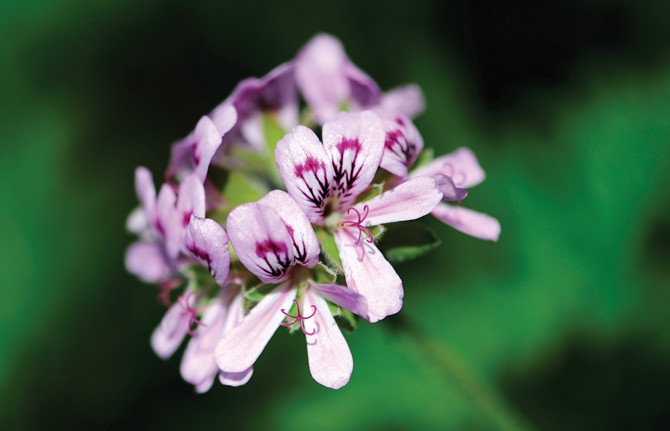 CITRONELLA GERANIUM Among all of the plants thought to be offensive to our local mosquitoes, most nursery professionals concur that citronella geranium is second to none. Also known as the scented geranium and mosquito geranium, this plant is the best defense in the garden. It is citrus-scented, not unlike citronella. Known more for its useful foliage than its small pink flower, lake residents often plant it around their patios solely as an insect repellent.
CITRONELLA GERANIUM Among all of the plants thought to be offensive to our local mosquitoes, most nursery professionals concur that citronella geranium is second to none. Also known as the scented geranium and mosquito geranium, this plant is the best defense in the garden. It is citrus-scented, not unlike citronella. Known more for its useful foliage than its small pink flower, lake residents often plant it around their patios solely as an insect repellent.
In some cases, no matter what type of repellent we use, mosquitoes attack. “Mosquitoes love me” is often heard as we dive from their buzzing sounds. Even if their effectiveness is questionable, these plants offer color and fragrance to our patios and garden areas. And, if these plants deter mosquitoes, then all the better.
